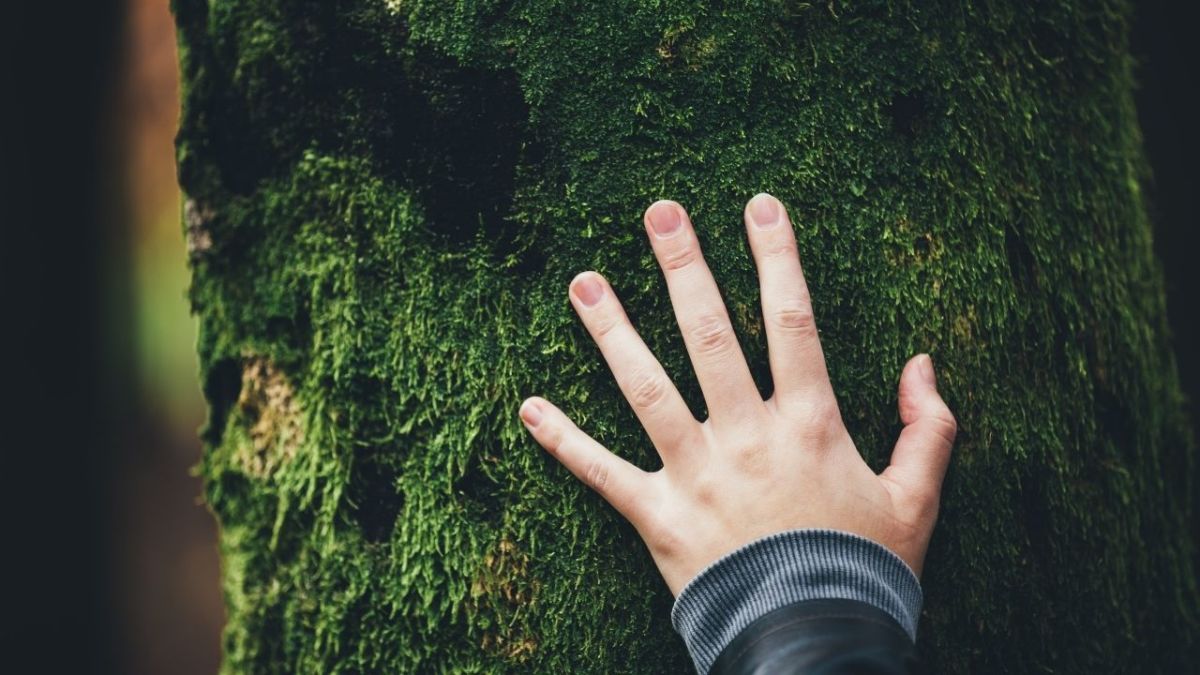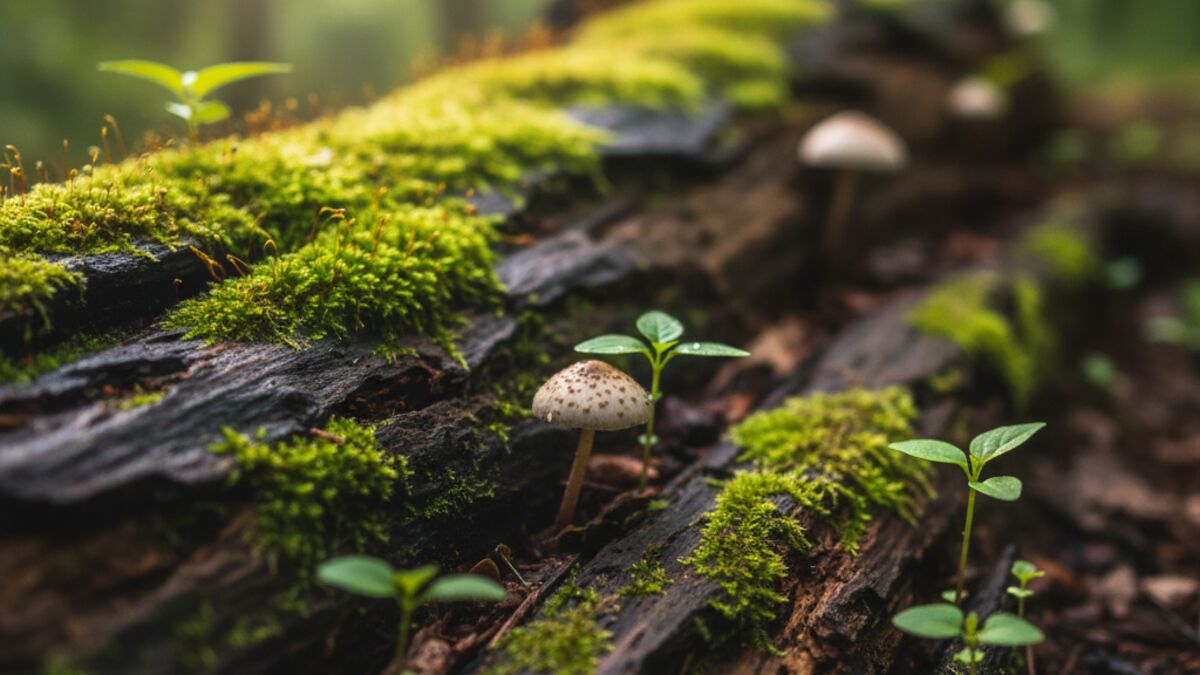
60% of connection to nature lost - What capitalism really costs us
👉 The key facts from this guide
- We have lost up to 60% of our connection to nature since 1800, which is a disturbing development.
- The loss of our connection to nature is strongly linked to the economic orientation of countries, especially in capitalist systems.
- A major factor in the decline of our connection to nature is the generational gap, as parents can no longer pass this connection on to their children.
- Measures such as wilderness pedagogy and personal experiences in nature are presented as a counter-movement to an alienating system.
- Long-term, profound changes are necessary to restore our connection to nature, including greener cities, earlier education and political changes.
The other day I was sitting at my desk with a coffee.
It was raining outside.
The screen was glowing.
E-mails.
Appointments.
Some software bug that urgently needed to be fixed.
And then my son came into the room, a stick in his hand.
"Dad, look, I found this outside. It looks like a sword."
I nodded. Said something. Thought: Almost done, then I'll have time.
But honestly?
I had no idea what kind of wood it was.
No idea what tree.
No idea if you could really carve a good sword out of it.
I just knew: This bug here was "important".
What I didn't know then: I was part of a statistic
According to a study, we have lost a whole 60% of our connection to nature since 1800.
60 percent.
That's not just a decline – that's a collapse.
And it's not happening somewhere out there.
It's happening inside us.
In our families.
In the way we live.
Researchers have found that this loss aligns almost perfectly with another trend: the disappearance of nature words from books.
Words like river, moss, blossom.
They are disappearing from our language – and thus from our thinking.
Germany: 56th out of 61
Another study compared 61 countries and looked at how connected to nature the people there are.
Germany?
Rank 56.
Just ahead of Spain, just behind Israel and Japan.

The least nature-connected countries in the world are not some crisis regions. They are the highly developed, economically "successful" nations.
Great Britain, the Netherlands, Canada, Germany.
What do they have in common?
They are all strongly capitalist.
What does capitalism have to do with it?
The study found: The more "business-friendly" a country is – meaning the more the economy is prioritized – the lower the connection to nature.
That makes sense.
In capitalist systems, nature is not seen as part of us. It is a resource. Something to be used. Something to be exploited.
Trees are timber.
Rivers are hydropower.
Meadows are building land.
And us?
We are a workforce.
Consumers.
Taxpayers.
We function in the system – but we no longer really live.
The Generational Break
What scared me the most was this:
The researchers say that the biggest factor in the loss of nature connection is not urbanization. Not the internet. Not environmental destruction.
It is the generational break.
Parents are no longer passing on their connection to nature to their children.
Not because they don't want to.
But because they no longer have one themselves.
I was there. I stood at that exact point.
My son asked: "Dad, what kind of bird is that?"
And I didn't know.
I had a bachelor's degree in computer science. I could explain to you how an algorithm works.
But I couldn't tell my child which tree was outside our window.

The Gap I Felt
I grew up in Thuringia. Connected to nature, I would say.
My grandparents showed me which fish swim in the river.
Which trees stand in the forest.
Which mushrooms are edible.
My grandpa imitated a red deer during the rutting season – so loud and off-key that we all laughed. It was funny. But it was also real.
Then came school.
The job. Paris. Marketing.
Software development.
And suddenly I was someone sitting in front of a screen answering customer inquiries that annoyed me because they were basically completely unimportant.
Someone complained about a bug as if the world was about to end.
But in reality?
It didn't matter.
It was just another cog in a system that was burning me out – and giving me a salary in return.
What science says – and what I experienced
Researchers say: Connection to nature is not just a "nice extra". It is a root cause of environmental destruction.
If we no longer feel nature, we won't protect it.
And more importantly: If we no longer feel nature, we lose ourselves.
I felt that in my body.
I was tired. Annoyed. Stressed.
On Sunday evening, I was already depressed because it started again on Monday.
And then in 2015, my first child came.
And with him, the curiosity. The lightness. The questions.
"Dad, what is that?"
"Dad, can we eat this?"
"Dad, can we build a shelter?"
My children showed me what I had lost.
The Turning Point
I didn't want to be the father who only takes the kids to an amusement park on Saturday and is gone again on Monday.
I wanted to be the father who is in the forest with them.
Who knows how to make a fire.
Who shows them how to carve a spoon.
So I started to learn.
Wilderness pedagogy. Tracking. Craft techniques that generations before us knew – and that we have forgotten.
And I realized: This isn't just important for my children.
This is essential for me.
Nature is not just my workplace.
It is my home.
My teacher.
My place of strength.
Read also
33 Tips for More Connection to Nature – How to Strengthen Your Connection to Nature – Do you long for more connection to nature? Here you will find 33 concrete exercises and ideas with which you can easily strengthen your connection to nature.
Change the system – or break on it
The researchers also say: Individual campaigns like #30DaysWild are good for mental health – but they don't stop the cross-generational loss.
Why?
Because they are treating the symptoms.
They help you feel better for a month.
But they don't change the system that alienates you.
To reverse the trend, according to the study, we would need:
- Cities that are ten times greener than today.
- Early education that reconnects children with nature.
- Political changes that are sustained for over 25 years.
Sounds like a lot?
It is.
But you know what is more?
Losing another 60%.
Even more generations who don't know what it feels like to be truly outside.
Even more people who are depressed on Sunday evening because they have to function again on Monday.
What you can do now
I can't change the system single-handedly.
But I can do one thing: Give people a space where they can reconnect.
With nature.
With themselves.
With others.
That is why I founded Wildimpuls.
Not as a "nice to have".
But as a necessary counter-movement to a system that has been alienating us from nature for 200 years.
You don't have to be perfect.
You don't have to be a wilderness educator.
You just have to start.
Start going outside with your children – without a goal.
Start naming trees. Recognizing birds.
Start asking yourself: What truly makes me feel alive?
And if the answer is "not this screen," then you know what to do.
The hard truth
Capitalism has probably brought us a lot. Prosperity. Security. Technology.
But it has also taken a lot from us:
The ability to simply be.
Without a function.
Without a goal.
Without productivity.
Without competition.
Just being there. In the forest. In the moment. In life.
And that is not a luxury.
It is existential.
For you. For your children. For the planet.

Sources for the guide
- Richardson, M. et al. (2025): "Decline in human connection to nature over 220 years", Earth
- Richardson, M. et al. (2025): "Global nature connectedness study", Ambio
- Barkham, P. (2025): "Britain one of least nature-connected nations", The Guardian
- https://www.theguardian.com/environment/2025/nov/01/britain-one-of-least-nature-connected-nations-in-world-with-nepal-the-most
- https://www.theguardian.com/environment/2025/aug/09/human-connection-to-nature-has-declined-60-in-200-years-study-finds
- https://link.springer.com/journal/13280
- https://www.mdpi.com/2673-4834/6/3/82

Author of the guide
Martin Gebhardt
Hey, I'm Martin. On my blog, you will learn the basics and numerous details about living in the wild. I think survival, bushcraft and the good life in nature are the keys to happiness. Find me here on Instagram or on YouTube. You can find more about my mission on the About Me page.
Was this guide helpful?
28 people found this guide helpful.
5.00 out of 5 points (28 Ratings)
Comments (0)
This post may contain affiliate links. So if you click on the links and make a purchase, I will receive a small commission at no additional cost to you. Click here, to learn more about it.


